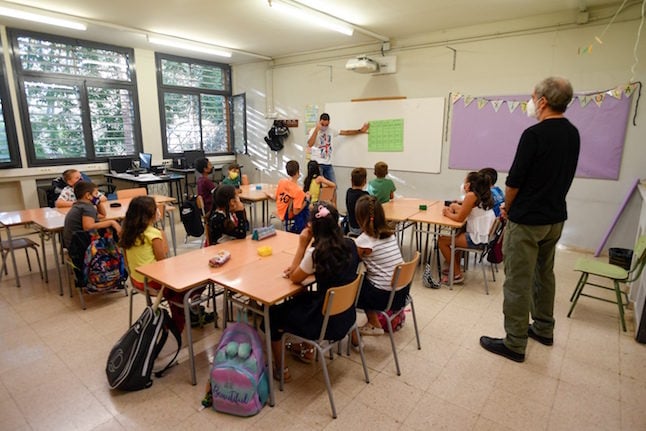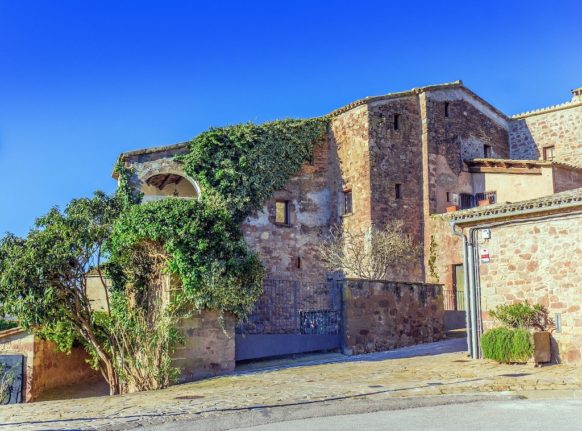In late November, Catalonia’s Supreme Court confirmed that at least 25 percent of classes will have to be taught in Spanish in schools in Catalonia, quashing the regional government’s appeals to stick to the full Catalan language model.
While some were in favour of the new ruling, others including the Minister of Education of the Catalan Generalitat, Josep González-Cambray were firmly against it.
He defined the move as a “new frontal attack by the judges on the educational system in Catalonia” and sent a message to Catalan schools, assuring them that despite the new situation, there will be “no change” in the current system.
READ ALSO – CONFIRMED: 25 percent of school lessons in Catalonia must be taught in Spanish
But what do Catalonia’s foreign parents think about the situation?
The issue of language is a very delicate matter in Catalonia, but are foreign parents happy that their children may now potentially learn more in Spanish or do they think the old model worked just fine?
Doug, who lives in Sant Vicenç de Montalt near Mataró, told The Local Spain: “Our kids speak Catalan at home, with all the family except me, and with most friends. They get two hours of Spanish a week. They also do two hours of English, plus three subjects are taught in English. As such their Catalan is great and their Spanish is not so good”.
When asked whether he thought the new ruling would be good for his kids he said: “Yes. I think 50/50 would be fair with fewer subjects ‘taught’ in English. Catalan is an important language to learn if you live here, vital if you are Catalan of course, but it’s good to learn as much Spanish as possible too”.
Bex, who also lives in Catalonia, disagreed with this, preferring that the old model be followed. “Now in ESO (secondary school), it’s two hours of Spanish a week out of 30 hours. My kids speak Catalan at school and at home, so they would find it difficult to switch to doing other subjects in Spanish. Educational specialists should be in charge of policy, not politicians,” she said.
“People still think languages are learned in classrooms. Stipulating a percentage is silly and it seems like a deliberately provocative measure,” she added.
Non-Catalan speakers in Catalonia
Whilst it would be difficult for kids to suddenly switch to learning in another language, Neil, who lives in Gavà just outside Barcelona, said: “I think the problems come when a non-Catalan speaking kid moves to Catalonia from elsewhere when they are a bit older, but I’m not sure having increased classes in Spanish would help them in the long run. I could be wrong though”.
He says that his three-year-old speaks Catalan at school and at home, but has already learned decent Spanish playing with his friends in the playground in just three months.
In urban Catalonia, Spanish is the language of the playground
According to a 2019 study by Catalan NGO Plataforma per Llengua, the use of Catalan in the playground falls by half from primary to secondary school.
The same study found that only 24.3 percent of conversations in the playground between students in urban schools were in Catalan.
This means that regardless of what languages are being taught in the classrooms, in urban areas, kids seem to be learning Spanish anyway.
One of the main problems is in the capital of Barcelona, where 25 percent of the population of Catalonia lives.
According to the University of Barcelona, 98 percent of Barcelona residents speak Spanish and only around 50-60 percent speak Catalan.
Josh Grady, a reader based in the Catalan capital, told The Local Spain that he has so far had an excellent experience with Catalan education and that he can’t see it improving with more arbitrary rules for schools to follow.
However, Josh added that “my daughter’s is at a school for foreign children, and I can imagine that the imposition of Catalan has been a stumbling block for many families. Improving access to education for the working class can only be a good thing”.
Annette Pacey, also in Barcelona, told The Local: “I suspect there is a lot of variation between schools based on their location/population.
“For me as a foreigner, it would be convenient if more classes were in Spanish, but I totally get and support why education should be in Catalan; firstly so it doesn’t die out, and secondly it helps somewhat to ameliorate divisions in society if most people speak at least some Catalan”.
‘Speaking two languages at native level can only be a good thing’
Pacey added: “Having said that, I do find the politicisation of education very tiresome in general. Politicians politicking at the expense of what kids need. Speaking two languages to a native level is good for everyone, but many are focused on eliminating the one they don’t like”.
Sally Davies agreed with Pacey’s points and added that although she was fine with school permission slips and other documents arriving in Catalan “I don’t think it would signify a defeat to repeat the text in Spanish and would really help some of the South American/Andalusian parents particularly”.
Will anything change?
Many foreign parents believe that despite the recent ruling, nothing will actually change in practice.
Several parents, particularly those in Barcelona, have argued that some children are already learning more Spanish in school than most people are led to believe.
Stephen Burgen said: “Concertada schools that are mostly Catalan will just ignore it but some schools in areas with lots of immigrants already give a lot more than 25 percent of classes in Spanish, even though they’re not supposed to”.
Pacey said that after discussing the matter with her daughter, she learned that quite a few of her classes are actually taught in English and Spanish, estimating that these add up to around 50 percent.



 Please whitelist us to continue reading.
Please whitelist us to continue reading.
Member comments